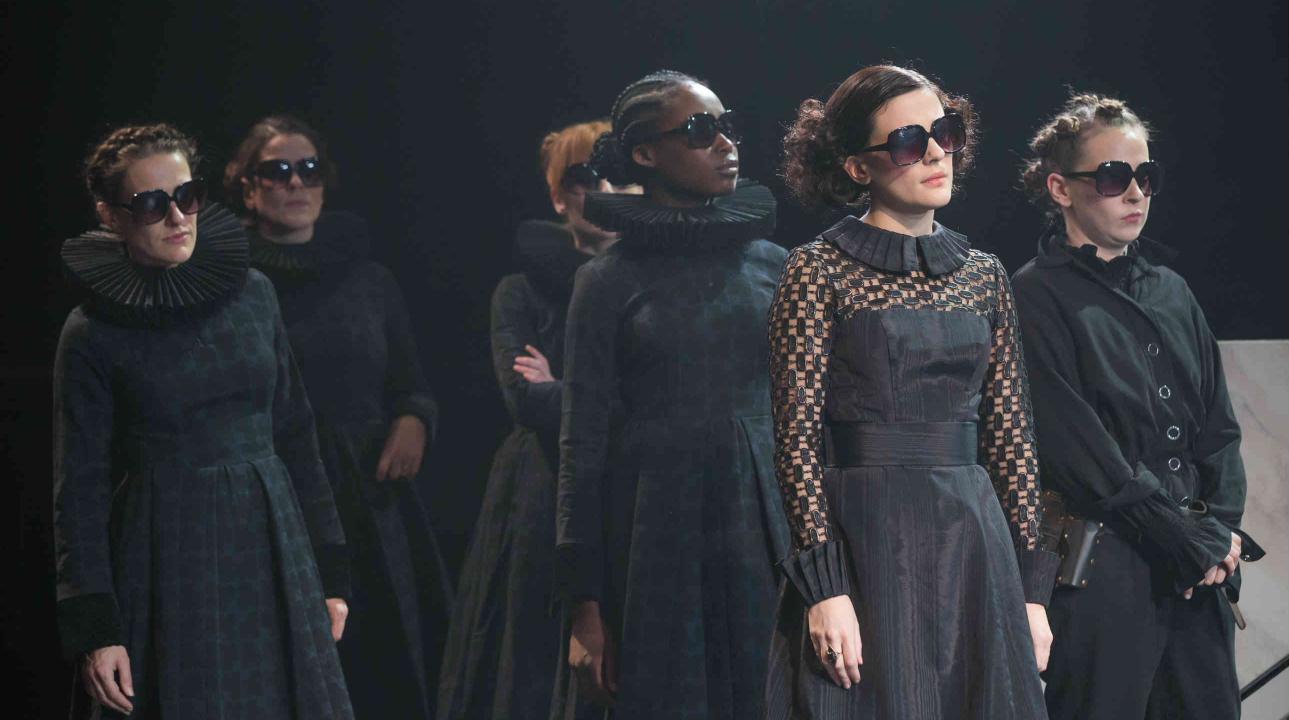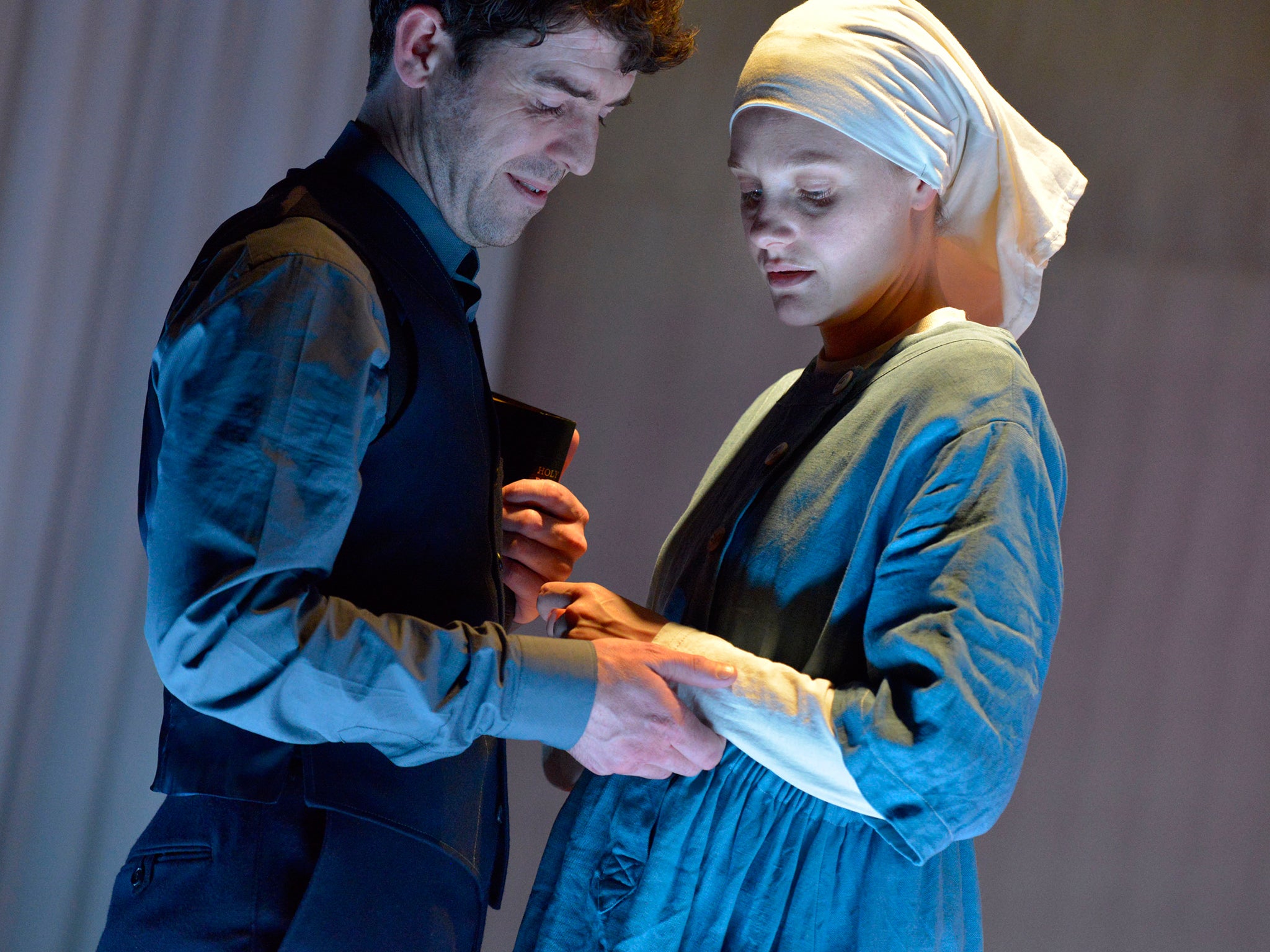Top five Shakespeare plays that speak to the 21st century
With Shakespeare Week upon us, Emma Smith – author of ‘This Is Shakespeare’ and professor of Shakespeare Studies at Oxford University – picks the bard’s most 2020-applicable works, from ‘Othello’ to ‘Pericles’

Your support helps us to tell the story
From reproductive rights to climate change to Big Tech, The Independent is on the ground when the story is developing. Whether it's investigating the financials of Elon Musk's pro-Trump PAC or producing our latest documentary, 'The A Word', which shines a light on the American women fighting for reproductive rights, we know how important it is to parse out the facts from the messaging.
At such a critical moment in US history, we need reporters on the ground. Your donation allows us to keep sending journalists to speak to both sides of the story.
The Independent is trusted by Americans across the entire political spectrum. And unlike many other quality news outlets, we choose not to lock Americans out of our reporting and analysis with paywalls. We believe quality journalism should be available to everyone, paid for by those who can afford it.
Your support makes all the difference.When fellow playwright Ben Jonson called Shakespeare “not for an age, but for all time”, he was right. But only up to a point.
Shakespeare has been a cultural and theatrical constant for four centuries, but different plays have waxed and waned in popularity. When Charles II was restored to the English throne, Nahum Tate rewrote King Lear to echo this new politics.
The Victorians loved Cymbeline because its moral, resourceful heroine Imogen – as performed by Ellen Terry – seemed a perfect form of womanhood. We didn’t know what to do with a play about a cynical and unwinnable conflict which no-one really understood, until the Vietnam War, when Troilus and Cressida found its voice.
Here are the plays that speak to the early 21st century (and hardly a plague in sight).
1. Twelfth Night
Twelfth Night’s jaunty subtitle “What you will” is the keynote for its wry acceptance of human desires. It capitalised on the Renaissance frisson of male actors in female roles, turning it back on itself by depicting a female character who spends most of the play as a man. It’s long been seen as a play that flirts with same-sex passions, and changing stage depictions of the erotically charged scenes between Orsino and Cesario, or Olivia and Viola, or Antonio and Sebastian, have charted changing societal attitudes to sexuality. For the 21st century, though, the focus is slightly different. Time to say goodbye to the old idea of a “cross-dressed” heroine, and, instead, to stop dead-naming Viola, to accept their (yes, their) chosen self-identity of Cesario, and to stop patronisingly assuming that Orsino is somehow confused about who he’s coupled with at the end of the play.
2. Othello
If Hamlet’s existential intellectual hero made him the poster-child for Victorian ideas of the tragic hero, and the unflinching cruelty of Passchendaele and Hiroshima made King Lear seem a parable for the sufferings of the 20th century, then the tragedy for the globalised 21st century must surely be Othello. As the play’s location moves eastwards from Christian Venice to the more (and still) contested territory of Cyprus, its deep concern with forms of belonging and alienation are revealed. We used to understand the identity of Shakespeare’s “Moor” as primarily racial, but the word actually signalled to early modern audiences a religious category – Muslim. Now that religious wars, discrimination and genocide reorganise the globe on sectarian grounds, this play strikes a bitter chord. As his final speech acknowledges, Othello is both Christian and “Turk”, both the defender of Venice and the enemy within. The tragedy is that his composite identity is seen as impossible and unsustainable in the world of the play.
3. Measure for Measure
When Measure for Measure was dubbed one of Shakespeare’s “problem plays”, it wasn’t entirely a compliment. But, like the taste for salted caramel, we now prefer our comedies less sickly sweet, with an unresolved edge. Perfect for the unhappily-ever-after mood, Measure for Measure gives a jaundiced view of sex, human commodification, and power. It speaks to #MeToo, but is not entirely on-message: Shakespeare writes the encounters between the hypocritical politician Angelo and the novice nun Isabella with an intensity and shared intelligence that is deeply troubling. She does not in any way welcome his sexual proposition, but their fraught interviews stand in for all the play’s off-stage courtships, pillow-talk, and flirtation. No one else in the play troubles to engage Isabella’s spiky, astute mind, even as that is, for Angelo, only a route to her body. Measure for Measure is a Shakespearean comedy for grown-ups.

4. King John
This brilliantly sardonic and decentred history play shows us a country without proper leadership. Forget all that “once-more-unto-the-breach” heroism; forget the divine right of kings; forget Shakespeare’s poetry of feudalism – this is a play about would-be Machiavels, contested sovereignty and a political assassination that is, really, a medieval clusterf***. We don’t get – as elsewhere – the rightful king and the challenger, but something much messier. It’s no accident that the central character is called “Bastard” – a figure for triumphant personal and political illegitimacy. Ironic, unconvinced, at an oblique angle to the hopeless machinations of the politicians and merciless in stripping away their rhetorical self-justifications, the Bastard is this play’s compromised hero. His final lines, often quoted out of context, echo with this caustic insight: “Naught shall make us rue, If England to itself do rest but true.”
5. Pericles
Pericles is a dramatic gazetteer studded with place names – Tyre, Pentapolis, Ephesus, Mytilene. To earlier generations with different preoccupations, this itinerary recalled the travels of St Paul and the locations of his New Testament correspondents. But for the 21st century, this dangerous criss-crossing of the Mediterranean recalls the desperate migrant passage from the Arab-speaking world to southern Europe, with Greece and Sicily as particular hotspots. Pericles’ voyaging is at once geographical and psychological: encountering a complex world, dealing with grief and loss, he is in flight from himself. Only reunion with his family can centre him and re-establish home as an emotional, rather than a spatial, location. The fairytale ending doesn’t take away the real insights about human selfishness, fear, and the persistence of hope that structure Pericles’ maritime equivalent of a road movie. (And yes, there is a plague, but it only kills bad people.)
This Is Shakespeare – How to Read the World’s Greatest Playwright is out on hardback now, and on paperback on 2 April
Join our commenting forum
Join thought-provoking conversations, follow other Independent readers and see their replies
Comments